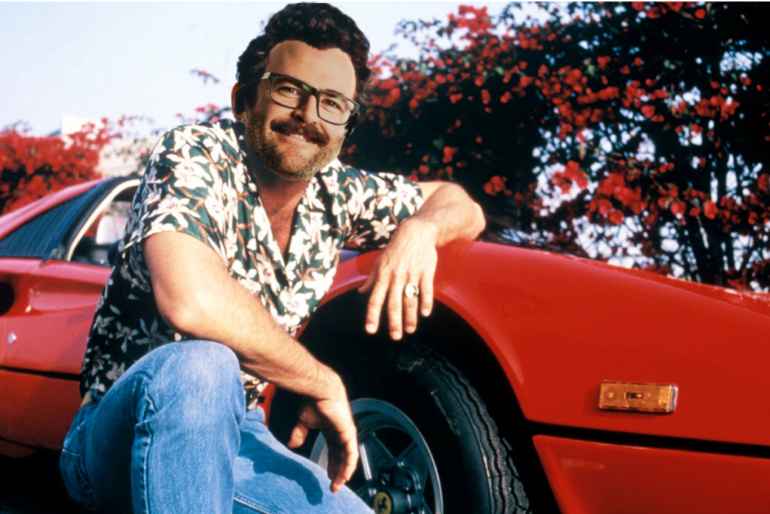Have you ever accepted online terms and conditions without reading them? Have you ever visited a restaurant without looking up its reviews? Have you ever thrown a ball without mapping out its trajectory using Newton’s equations of motion?
Yes? Then you have displayed a behaviour known as cognitive miserliness.
Cognitive miserliness: the tendency to avoid (or reduce) mental effort when making decisions
There could be many reasons why someone looks to reduce mental effort. They could be limited by time, they may have other higher priorities, they could be overwhelmed by the information needed to make a rational decision, or as is often the case when thinking about my subject area, mortality: thinking about the subject might be actively unpleasant.
“Mortality… probably a good thing to think about occasionally, but doesn’t necessarily put you in a good mood.”
The tendency of people to embrace the path of least resistance in decision making has received a lot of attention over the last 10-15 years. It is the central premise of the book Nudge, in which Thaler and Sunstein explore how removing mental barriers from desired outcomes can “nudge” people into certain behaviours. Nudge techniques that take advantage of cognitive miserliness vary widely, from encouraging people to save more for retirement to encouraging them to buy more online.
I’ll have what they’re having
A key display of cognitive miserliness is our readiness to defer decision-making responsibilities to other people. We take our lead from people ranging from top scientists to social media personalities; we look to people we trust, those we assume to have great expertise, experience or knowledge or maybe just those who seem to have bothered to think about things a bit more than us.
When traveling for work, I used to find the frequent travel planning overwhelming. Lucky for me, I often travelled with my colleague, Dan Reddy, who I found to be excellent at choosing hotels. With cognitive miserliness in full flow, I would just book into the same hotel as Dan and save myself a lot of effort. This arrangement worked well, but what if our incentives had diverged? What if Dan had been gifted a stack of non-iron shirts, and started checking into hotels with no irons? Would I have noticed, or would I have just started turning up to meetings with creased shirts?
British politician, Michael Gove, may think people have had enough of experts, but I for one embrace expert opinion. However, we do need to be careful when deferring decisions to other people. Are we relying on someone with relevant expertise? Are they trustworthy? What are their incentives and are they aligned with ours? I find it especially relevant to think of these questions when I encounter celebrity endorsements. Tom Selleck currently appears in an advertising campaign for reverse mortgages, asserting his credentials by exclaiming “I’ve been around long enough to know what’s what”. This does not reassure me about his financial expertise and seeing how out of breath he gets delivering his lines, I think his incentives may only be aligned with those with certain health profiles. On the other hand, his moustache does put him towards the trustworthy end of the facial hair spectrum.

Another display of cognitive miserliness is our tendency to embrace simplifying rules of thumb for decision making, known as heuristic – a subject first explored in depth by psychologists Kahneman and Tversky. When faced with a complicated situation, cognitive miserliness pushes us to simplify the situation into something that is easier to handle. We develop simplifications for many situations, which in most circumstances give us good enough approximations to make sound decisions.
However, under some conditions a usually sound approximation may falter, as I wrote about in a previous blog on the availability heuristic. For another example, consider the gaze heuristic: the technique used by people and animals to catch a ball by following its trajectory with their gaze. This simplification to the complicated physics of an object moving through the air makes catching a ball much easier in most situations. However, on a windy day the ball can be blown off course causing these simplifications to fail, potentially resulting in an embarrassing own goal.
When using simplifying assumptions, beware of windy days!
Here comes the wind
For longevity actuaries, I noticed one of these windy days this year. Each year, the Society of Actuaries releases an assumption with which to project improvements in life expectancy. This assumption is created by projecting trends in recent data into the future. Due to delays in reporting, the data used to calibrate the model covers a period ending two years in the past. The simplifying assumption when using this model is that nothing particularly unusual has happened during the two years since the data finished and that no adjustments for this period need to be made. However, the COVID-19 pandemic has made mortality experience in 2020 exceptionally unusual and we must think carefully about whether 2018 data is a reasonable place to start when considering improvements to life expectancy in a post-COVID world.
Human nature?
Cognitive miserliness was first proposed as a model for human thinking in 1984 by psychologists Susan Fiske and Shelley Taylor in their book Social Cognition. Before this, human thinking was generally thought to follow the naïve scientist model – a rational decision-making process working with incomplete information. The cognitive miser was suggested after observing many situations where people did not act rationally given the information available to them.
In practice people do not act consistently as either a cognitive miser or a naïve scientist, and in fact move between these two extremes depending on the situation.1 I found it convenient to act as a cognitive miser when the stakes were low, deferring the choice of where I would stay for one night to Dan. However, when it came to renting an apartment, I thought about it properly and made that decision myself.
What do you think?
Cognitive miserliness allows us to cope with a complex world and focus our attention where we really feel value. But remember to check periodically that the mental shortcuts you are using remain appropriate. Do I need a third cheese grater, or is one-click payment too convenient not embrace? Is last year’s actuarial methodology still appropriate or has there been a change away from the underlying assumptions? Is a reverse mortgage really right for me, or have I just been lured in by a beautiful moustache? Asking yourself such questions may help you avoid a wind-assisted own goal.
Notes:
1. In the language of Danny Kahneman’s Thinking Fast, Thinking Slow, the System 1 and System 2 styles of thinking could be equated to the cognitive miser and the naïve scientist respectively.




